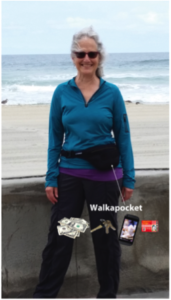Sleeping Too Much – It Might Be a Sign of Dementia Risk
 Sleeping Too Much? It May Be a Sign of Increased Dementia Risk
Sleeping Too Much? It May Be a Sign of Increased Dementia Risk
Are you sleeping too much?
Sleeping more than nine hours a day may be an early sign of degeneration of the brain and signify an increased risk of dementia in older people, according to a study published in Neurology®, the medical journal of the American Academy of Neurology.
“We found that when older people transitioned from regularly sleeping less than nine hours to sleeping more than nine hours, they had an increased risk of developing dementia 10 years later,” said study author Sudha Seshadri, MD, of Boston University School of Medicine in Boston, Mass., and Fellow of the American Academy of Neurology. “We also showed that those who had regularly slept more than nine hours in the past and simply maintained that level of sleep did not have an increased risk.”
For the study, researchers evaluated data on 2,457 people living in Framingham, Mass., spanning two generations, who were regularly examined and surveyed about their health as part of a large, community-based study. The average age of participants was 72 years. Over 10 years, 234 people, or 10 percent, developed some form of dementia, and 181 of those, or 8 percent overall, were specifically diagnosed with Alzheimer’s disease. A total of 96 people, or 4 percent, reported sleeping more than nine hours a night at the beginning of the study and 75 people, or 3 percent, reported changing from sleeping nine or less hours to more than nine hours.
Overall, those who slept more than nine hours were twice as likely to develop dementia than those who slept nine hours or less. Of the 96 people who reported sleeping more than nine hours, 19 developed dementia, or about 20 percent, compared to 215 of the 2,361 people who slept nine hours or less, or about 9 percent.
Those who transitioned from sleeping less than nine hours to nine hours or more had a nearly two and a half times greater risk of developing dementia, with 16 of the 75 people developing dementia. They were also two times more likely to develop Alzheimer’s disease, with 11 out of the 75 people developing Alzheimer’s disease.
People who had already been sleeping for more than nine hours a day for 13 years prior had no increased risk of dementia.
Those who slept more than nine hours as opposed to six to nine hours also were less successful in processing thoughts and accomplishing tasks and had lower brain volume.
“The difference in scores on tests of processing thoughts was the equivalent of about 12 years of aging, and the difference in brain volume was the equivalent of about five years of aging,” Seshadri said. “These estimates are based on small numbers and are not precise, but they give you some context for the size of the difference between those who slept longer and those who did not.”
Those who slept longer were also more likely to have no high school diploma and mild cognitive impairment, which is a precursor to dementia. People with no high school diploma who slept more than nine hours were six times more likely to develop dementia.
“Together, these results suggest that if someone is sleeping longer, it may be an early marker of neurodegeneration,” said Seshadri. “Unfortunately, it is likely that any efforts to reduce their amount of sleep would not lower their risk of dementia.”
There were limitations of the study. Participants self-reported sleep data. In addition, researchers only looked at overall sleep totals and did not divide those totals into overnight sleep and naps. Further study is needed to better examine the biology behind longer sleep duration.
I’m not one for sleeping too much typically because after a while, I just have to get up. My wife, when she has the opportunity, enjoys sleeping longer but she has a lifelong history of sleeping too much if she can get it in. Hopefully neither one of us are at risk!
Laugh Every Day – Smilecast 7
Laugh Every Day
One of the things that annoys me is that caregiving is mostly painted in drama, crisis and depression. It doesn’t have to be that way if we learn to laugh every day. Honestly, if I did not find the humor in caregiving for my mom I would have gone crazy. And since a lot of the things she said made you laugh (unfortunately not always with her) it was easy to get a smile in every day.
Podcast: Play in new window | Download
Subscribe: Apple Podcasts | RSS
Our Friday Song of the Week – Drink a Beer
Our Friday Song of the Week – Drink a Beer
Millennial Caregivers – Smilecast 35
Millennial Caregivers
Millennial caregivers make up 25 percent of carers in this country. For them the burden can be overwhelming, juggling work, school and other responsibilities. Yet with aging baby boomers and more people being diagnosed with early onset Alzheimer’s, this generation has been pushed into service. Employers need to step up to create cultures where all carers are accepted and where workplace programs can help caregivers with the needed flexibility and the needed resources to help them.
Podcast: Play in new window | Download
Subscribe: Apple Podcasts | RSS
Walkapocket – a Better Waist Pack
Walkapocket – a Better Waist Pack
(A colleague Cathy Larrick, brought her product, a better version of a waist pack, to my attention and I thought it was worth sharing with our readers. She tells you about it below.)
I designed Walkapocket to be simple, effective and modern. To carry necessities and leave your hands free: a slimmed down version of past fanny packs. Worn under or over clothing. It is nice not to have anything around your neck or shoulders.
Walkapocket is made from a performance, abrasion resistant, durable fabric. Very light weight, washable and quick dry. Walkapocket comes in 4 sizes, stretches just enough to comfortably hug your body. It stays in place; you do not know it is on.
AND…this waist pack is made in the USA
A “paper pocket” is included to hold credit card, ID and cash separate from phone.
My customers who are active, older adults tell me they are happy to have found something so convenient to wear around or just below their waist. They tell me they are in the habit of grabbing their Walkapocket every day to head out for a walk, walk their dog and have their phone at their fingertips. They tell me it makes things so easy when you have a walker or cane. No more leaving their purses in grocery carts.
Following is a quote from a customer living in a retirement community:
“Cathy — so nice to receive your personal note with my Walkapocket package. I recently bought a new and larger phone and have been looking for an easy and safe way to carry it when I’m not out with my large bag, as in going around my neighborhood, to the social hall, to a friend’s home. There’s not much out there! Walkapocket turned up in the search. It looks great, fits well, and I am looking forward to using it. It is slim enough to wear under a shirt.”
Mary then called me and ordered 6 more Walkapockets for her friends!
Purchase at http://www.walkapocket.com/
Or call the Walkapocket Senior Hotline: 215 493-2605.
Walkapocket is The Perfect Pocket Solution: never forget your phone, misplace your keys or forget your ID and cash again.
Walkapocket promotes walking and makes it easy for you to stay active. It’s a newer, better version of the fanny and waist pack.












